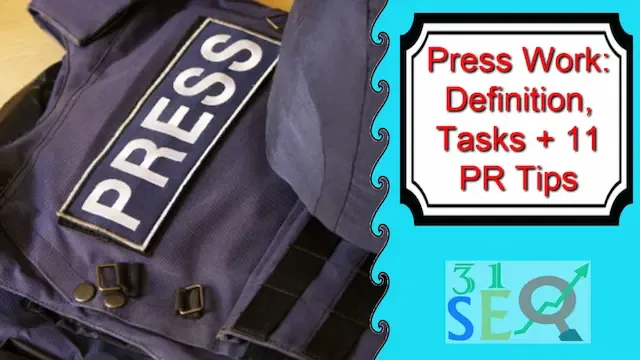Press Work: Definition, Tasks + 11 PR Tips
 |
| Press Work: Definition, Tasks + 11 PR Tips. |
The goal is to achieve the most positive coverage possible, thereby expanding reach and improving the image. Here are some tips on how to make it work…
What is Press Work?
If you are self-employed, you should not neglect press work for your company or product. If you do not have your press department, you can hire an external agency to handle this— for example, to establish a reputation as a competent expert or generally increase visibility.When doing press work, consider all types of media outlets:
- Print media (newspapers, magazines, trade journals)
- Radio (private stations, public broadcasters)
- Television (local stations, private and public broadcasters)
- Internet portals (including specialized blogs)
- Social networks (LinkedIn, YouTube, Instagram, TikTok)
What Does Press Work Include?
Traditional press work involves more than just sending press releases. Maintaining contact with journalists and multipliers in the press and media is almost more important. Genuine trust and recognized expertise are the foundation for exclusive and effective stories and messages that resonate.Key tasks in press and media work include:
- Conducting media analysis
- Establishing and maintaining media contacts
- Building a press distribution list
- Creating press kits and information brochures
- Writing and distributing press releases
- Responding to media inquiries
- Conducting background discussions
- Organizing and inviting to press conferences
- Conceptualizing and executing media campaigns
- Preparing and managing crisis communication
The Dangers of Press Work:
Stepping into the spotlight can be perilous! For instance, saying something foolish or making false statements in an interview can damage your reputation more quickly and permanently than it can ever be rebuilt. Increased attention also leads to more envy and competition.Therefore, think very carefully in advance about how you want to position yourself and what you stand for. This also applies when a journalist calls you: consider carefully whether and what you want to say. What you consider trivial might be the main hook for the editor. Focus on a maximum of three key messages. Rarely will more be quoted.
